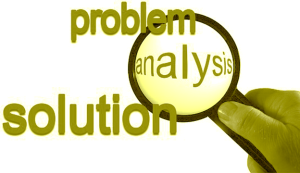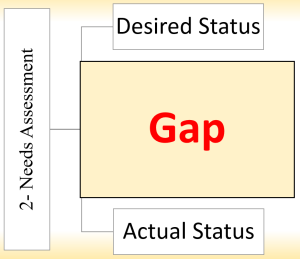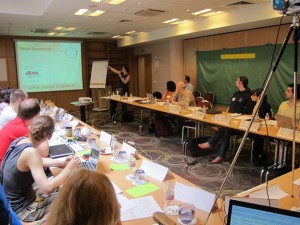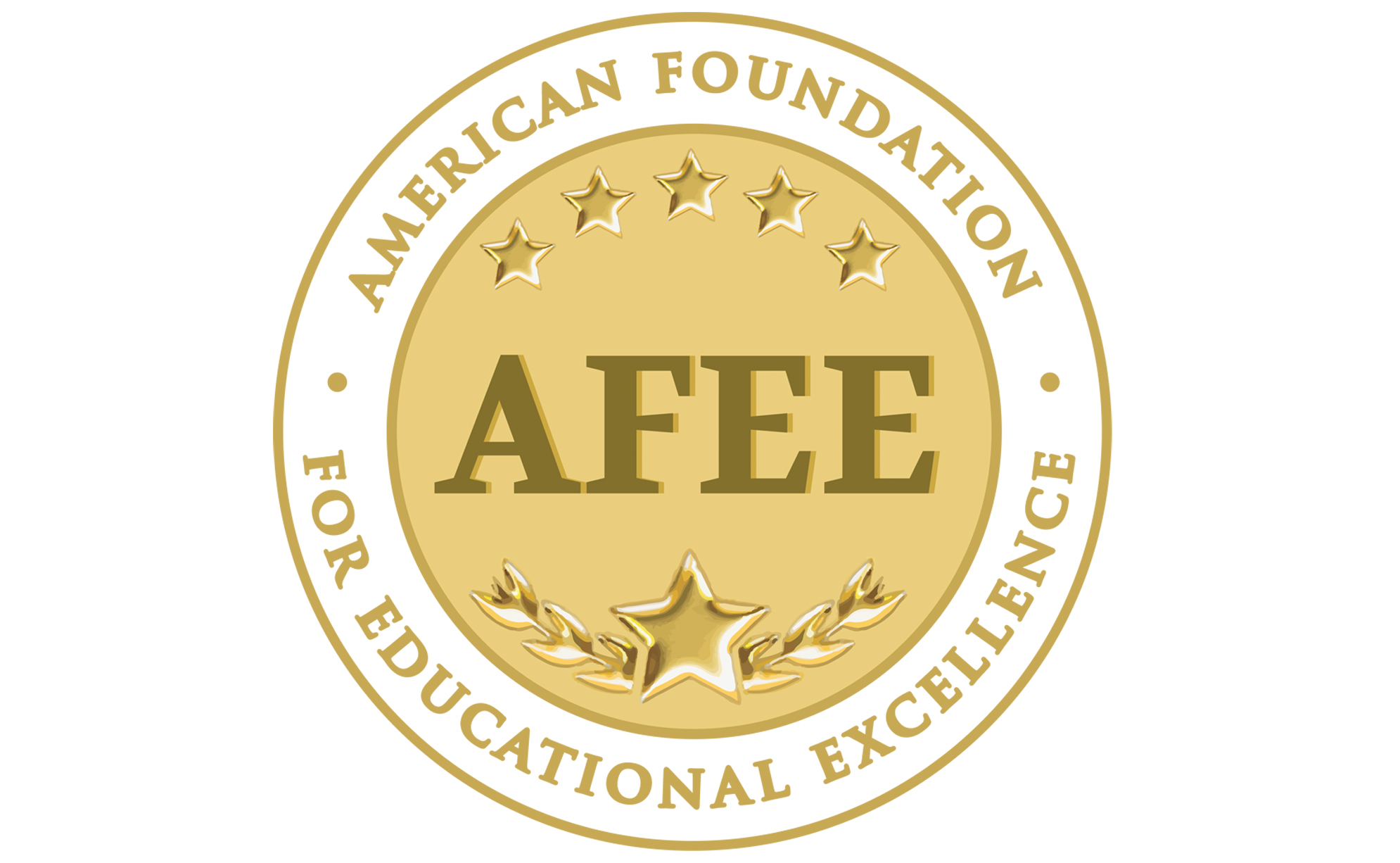Services Offered: Assessing the Institution’s Needs
We conduct different types of studies (listed below) to determine areas for improvement, identify problems, find their causes, list possible solutions, identify goals, and pinpoint changes needed.
- Performance Analysis
- Needs Assessment
- Job Analysis
- Evaluability Assessment
- Literature Review
- Logic Modeling
- Program Evaluation

1- Performance Analysis: The purpose of performance analysis study is to acquire information in order to verify problems and find solutions. We use analytical tools to identify organizational performance problems and then to develop the most appropriate solutions. We conduct a performance analysis of the organization’s finances and/or human resource management. Analysis of various finance performance indicators determines results in comparison to other similar organizations. We examine human resource management to determine if professional development and training can reduce problems. The outcome of a performance analysis study is a clear description of problems, evidence of problem causes, and suggested cost-effective solutions.
2- Needs Assessment: We conduct a systematic assessment to determine needs, or the gaps between current conditions and desired conditions within a program or organization, examine their nature and causes, and set priorities for future action.
to determine needs, or the gaps between current conditions and desired conditions within a program or organization, examine their nature and causes, and set priorities for future action.
3- Job analysis: We conduct a job analysis to examine the tasks pe rformed in a job, the competencies required to perform those tasks, and the connection between the tasks and competencies. Information from the analysis can be used to determine job requirements, training needs, position classification and grade levels, and inform other personnel actions, such as promotions and performance appraisals.
rformed in a job, the competencies required to perform those tasks, and the connection between the tasks and competencies. Information from the analysis can be used to determine job requirements, training needs, position classification and grade levels, and inform other personnel actions, such as promotions and performance appraisals.
4- Evaluability Assessment: We conduct an evaluability assessment to determine the extent to which a program or organization is ready for full evaluation. Evaluability assessment increases the likelihood that evaluations provide timely, relevant, and responsive evaluation findings to decision-making stakeholders.
5- Literature Review: We conduct and present a scholarly review of literature that is fo cused on a research question, to identify, appraise, select and synthesize all high quality research evidence and arguments relevant to that question.
cused on a research question, to identify, appraise, select and synthesize all high quality research evidence and arguments relevant to that question.
6- Logic Modeling: Working closely with stakeholders, we create a logic model [graphic tool that surfaces a program’s theory of change] that can be used to clarify underlying assumptions that drive program implementation and desired goals and outcomes. Logic models can be used to enhance communication and program management, to document how a program works, and to design program evaluation.
7- Program Evaluation: Utilizing rigorous social science research methods, we work closely with stakeholders to conduct a systematic assessment of the operation and/or outcomes of a program or policy, compared  to a set of explicit or implicit standards as a means of contributing to the improvement of the program or policy.
to a set of explicit or implicit standards as a means of contributing to the improvement of the program or policy.
Formative evaluation produces information about the development of a program that serves the needs of the developers to improve programs.
Summative evaluation provides information about the effectiveness of a program that aids stakeholders in making decisions about whether to continue or end a program, extend it to other locations, or cut it back.














































